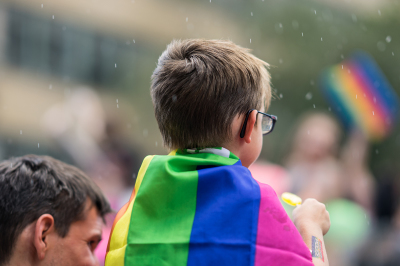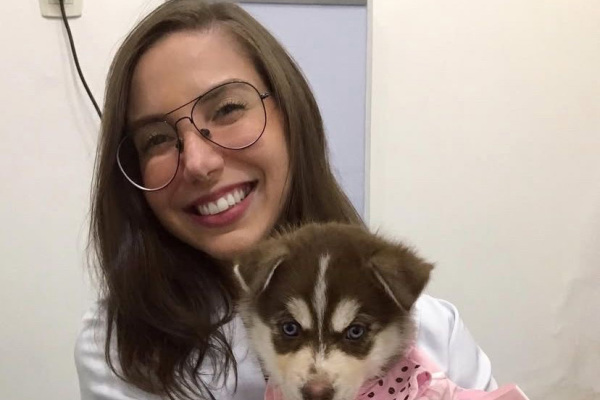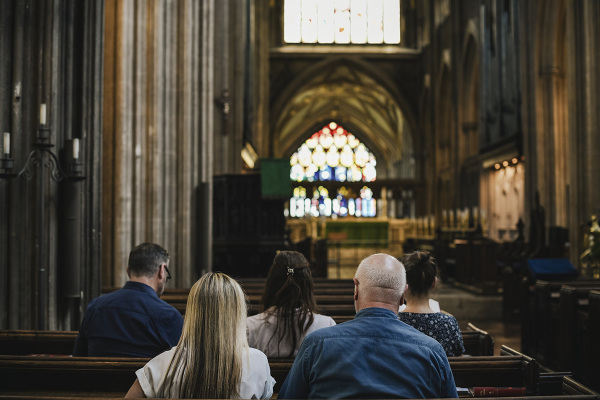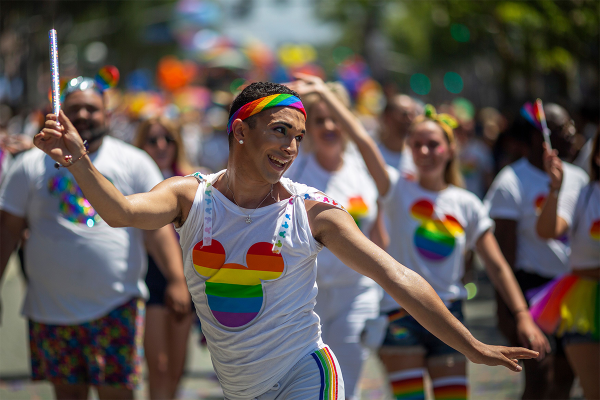Autistic people need compassion — not gender ideology

In 2010 I was diagnosed at the age of 36 with what was at the time called Asperger’s syndrome. In today’s medical literature, this is referred to as Autism Spectrum Disorder. Today, I am 50 years old and my diagnosis is 14 years in the past.
People like me struggle to feel like we fit in in this world, and something I’ve figured out since being diagnosed is that the idea of “social networking” for people on the autism spectrum is really quite an oxymoron. In other words: I’ve figured out that for people like me, to find others like myself for the sake of friendship, mutual support, and the like is much easier said than done. We’re rather asocial people in the first place, and the idea of us trying to meet one another for some kind of social interaction is contrary to our very natures as autistic individuals. However, there are support groups for autistic adults who wish to meet others and make friends. Those of us who want to participate in such groups, seek them out and attend them.
Where I live, in Dallas, Texas, the autistic adult community seems to have been taken over by gender ideologues. I’ve only been to a few such support groups and only in an online venue since the pandemic began. These support groups were organized and run by an autistic man who was on hormones and is living as a female. One of my relatives used to teach this person when he lived as a male. This person is a self-described transhumanist and he’s told me in no uncertain terms that he is a female, just the same as my mother or my sister. When I first found this person online, I thought I was dealing with an autistic female who was the organizer and facilitator for the support groups, and I asked him to go to dinner with me. That’s when he disclosed to me that he was born a male, but that he identifies and lives as a female. Then he asked me if I still wanted to date him. I said no, but that we could still be friends and go to dinner anyway. He seemed a little disappointed. He told me, “well, if you ever did want to date me it would not make you gay, since I am a woman.”
This made no sense to me at the time he said that to me a little more than four years ago, and it makes even less sense to me today. I just wanted to meet other autistic adults and go to a support group with them, not get pulled into some kind of political activism involving “preferred pronouns” and such. But basically, you’re not really welcome in the support group unless you are willing to humor and “affirm” the transgender and “non-binary” members of it.
While I have not been to one in a while, I have no reason to think that anything has changed. Another reason I have decided not to go to the support group is that anyone who merely “identifies” as being on the spectrum can go; a formal autism diagnosis is not required to participate in these support groups for autistic adults.
As long as you say that you “identify” as being autistic, you are welcomed as if you are genuinely autistic. This opens the doors for the activists and their agendas. Somebody walks in and tells me they are autistic, and I am expected to believe them just as when somebody who looks like a man in a dress walks in and tells me that he is a woman, I am expected to believe him.
According to a recent study published by the journal Pediatrics, “Youth with autism are three times as likely to have a co-occurring diagnosis of gender dysphoria than peers who do not have autism.” The researchers studied over 900,000 autistic youth over a period of more than ten years and this is the conclusion that was arrived at. Simply put, it was found that people who are on the autism spectrum are statistically more likely to deal with gender dysphoria and are therefore more vulnerable to the manipulations of activists who pose themselves as being in a position to “help” such youth.
One might ask: “Why don’t you just organize and start hosting a support group of your own for autistic adults?”
Well, the answer is that I’ve tried, but the advocacy organizations under whose auspices such support groups must be organized and run, have all been ideologically captured too. One cannot organize and run groups in their name unless one is ideologically conformed to modern gender theory. Specifically, I have approached ASAN, the Autism Self-Advocacy Network, and also Autism Speaks. They are both ideologically captured, in my experience. You cannot run an ASAN or Autism Speaks support group unless you are willing to "affirm." The same is true for other such organizations out there, that I have seen. And in the few online support groups I’ve attended, are more vehicles for political activism than they are offering support to autistic adults with one another, as peers. The support is only really offered to those who are willing to conform to gender ideology. If one is not willing to conform, then one cannot expect to participate in the “support group” (which is really just a sort of political meeting to begin with).
It’s a grim irony. For starters, we as autistic adults have problems conforming to social expectations to begin with, and then in these “support groups” a lot of pressure is placed on participants to do just that — conform to the expectations of the activists who are running them. Those who do not conform wind up excluded for daring to question or protest gender ideology. What is more, I have been in support groups with autistic adults who were barely verbal, and who probably had no comprehension of what they were being presented with, in terms of this ideology. These people were simply being used, like props, for the activists and participants to point to so that they can look and feel like they are being supportive of the autism community when in reality they’re only being supportive of the participants who are willing to humor them.
It’s very manipulative on the part of the organizers. One of them freely admitted to me that he’d never been formally diagnosed anyway.
I don’t know how this happened or how the adult autism community became so ideologically captured. I think that the only people who should be in these support groups are people who have been actually diagnosed as autistic, but then you run into the problem of how to screen them, and how to verify that a given person was actually diagnosed. But I also know that when you take a bunch of people who struggle to feel like they fit into this world, have identity issues, problems conforming to social norms and expectations, and then you put a bunch of them together, the situation creates its own social norms and pressure upon which we are expected to conform.
The result is a cohort of people who desperately want to make friends and find somewhere where they fit in who are then pressured to say that a “woman can have a penis” or that “a man can be pregnant,” people who are impressionable, malleable, manipulatable people. As an autistic adult myself, I have been asked by the group organizers to either conform my mind to gender ideology or stay away from the support groups. Meanwhile, a gay or bisexual activist who says that he “identifies” as being on the spectrum shows up for the support group and a person like me — a philosophically conservative, heterosexual, diagnosed autistic man is asked to stay away. So, I stay away from the support groups, and that’s a real shame.
Sadly, Christian churches and pastors with autistic parishioners are generally unprepared to know how to give support to autistic youth who are struggling with gender dysphoria, or even autistic youth in general. Everything about Christian thinking — indeed most monotheistic thinking in general (it seems to me) — declares that we were created by God, male and female. Yet transhumanist thinking, of which transgender ideology is a subset, declares the opposite — that we are and can be creators of ourselves. Transhumanist thinking is essentially atheistic in nature: God is a future reality for transhumanists, something that they see themselves as presently in the process of creating by means of technology. As I see it, the only solution is the promotion of biblically rooted, Christian principles into society, particularly regarding these issues.
All people of faith and goodwill must stand up to fight the menace of gender ideology, beginning with the Church. I hope that if the Christians take up the cause, people of goodwill, and of other faiths, will follow in short order.
Brian Birmingham is a native of Dallas TX, a graduate of UMass-Boston 2012 (summa cum laude), with a BA in Psychology and Sociology. He is an OIF veteran and cult researcher.





















